African-American emigrants to St. Charles shared an abusive history of power struggles within the slave trade. Many of the people who fled from this persecution did so through the underground railroad. St. Charles played an important role in helping slaves to freedom. Known abolitionists such as James Wheeler, James Durant, and members of the Kane County Anti-Slavery Society fought for the rights of these oppressed people. Many fugitive slaves traveled through the Fox River Valley following the river north to freedom.
The underground railroad was very active in St. Charles. It was not a railroad in the true sense of the word, but a term used to describe the pilgrimage of the slave to freedom in the North. The routes for passage would change frequently to help keep the runaways safe. Typically, escaped slaves would travel only at night, following waterways and railroad tracks northward. The information about the trails was spread through word-of-mouth, stories, or through song.
One of the many slaves who stayed in St. Charles was Joanna Garner. She worked for a family in town which gave her a block for farming and a small house in return for her services. Her descendants still reside in St. Charles to this day.
Abolitionists and sympathizers may or may not have helped in a slave’s journey, but those who did help were referred to as "conductors" and the temporary hideouts as "stations." St. Charles has several stations in which tunnels, false doorways, and small hideouts are found. In addition, letters written by family members prove the existence of the stations at some sites. The most probable stations include the James Wheeler home (Wild Rose Inn), the Klink Wagon Shop (Antique Market II), and the Norris Funeral Home.
In the summer of 1842, the "friends of the oppressed" were invited to form a society in which they could openly profess their disapproval in the institution of slavery. The organizers called themselves the Kane County Anti-Slavery Society. The Society consisted of over 180 men and women who fought for the rights of Blacks in the United States on a religious, social, and political level. All around the country at this time, a radical abolitionism had gained ground in the political arena and Kane County proved to be no different. Politically, the abolitionists supported the Liberty Party.
In 1833, the American Anti-Slavery Society was founded and during the following years, a network of state and local chapters were founded. The abolitionists involved in these organizations were the outspoken supporters of human rights at their time. Their courage can be compared to many human rights groups of today.
The constitution of the Society consisted of such unbending doctrines as:
...whereas our national existence is based upon this principle... ‘that all men are created equal, and that they are endowed by their Creator with certain inalienable rights, among which are life, liberty, and the pursuit of happiness;’ and whereas, after the lapse of more than sixty years... nearly one sixth part of the nation are held in bondage by their fellow citizens, and whereas slavery is contrary to the principles of natural justice, of our republican form of government, and of the Christian religion, and is destructive to the prosperity of the country...
The writers of the Society’s constitution went on to ask that the masters immediately free their slaves and stop endangering the peace and union of the States. They called for nothing less than to abolish all forms of slavery worldwide. The beliefs in basic human rights inspired the group not only to talk about the injustices of slavery, but to deliver relief efforts as well.
Aside from voting for candidates who supported abolitionist movements, Society members assisted the cause by harboring running slaves on the Underground Railroad. There are thought to be many "stations" in Kane county, many of which are unknown to this day. It was not unlikely however, that nearly all of the members helped the Underground Railroad in some way. One member of the Society wrote, "...consider me as ever ready to furnish all of the assistance in my power to aid and sustain the underground railroad in all lawful undertakings to obtain passengers and their safe deposit..." Because the Society had its most active membership before the Fugitive Slave Act of 1850, which made it illegal to assist slaves to freedom in the North, participation in the Underground Railroad by the Society was probably widespread.
The Kane County Anti-Slavery Society was headed by some of the leading citizens in the towns and churches. Among them, Valentine Randall, Frank Ward, and James Wheeler, and many leading women in the community, including Cynthia Waite, Abby C. Ward, Elizabeth Finley, and Catherine Walker. They all fought for the rights of slaves and participated in the works of the Society. A resolution was passed on September 24, 1844 stating: "we hail the formation of female anti-slavery societies, and the enlistment of female talent and effort, as affording the strongest grounds for encouragement, and the surest evidence of success on our holy cause." Over thirty women were among the original signers of Society’s constitution. Without the efforts of these courageous men and women, the cause of the abolitionist would have been that much more difficult to achieve.



